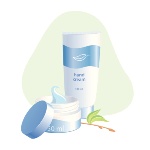

| Visitors Now: | |
| Total Visits: | |
| Total Stories: |
Vitamin D vs. Corticosteroids for This Skin Problem
Doctors Health Press is the leading authentic source for natural health breakthroughs and news. Sign up on DoctorsHealthPress.com for best health cure advice.
 Psoriasis is one of those tricky conditions to treat. Sometimes it’s anybody’s guess what’s triggered it—is it a sensitivity to acidic foods? Is it stress-related? Could it be a mineral or vitamin deficiency that’s allowing the psoriasis to take hold? Often the answer isn’t clear and this can make finding an effective remedy more of a challenge. And while psoriasis does have some unpleasant symptoms, mainly in the form of irritated skin, most people treat the condition because they want to have smooth, healthy, glowing skin when presenting themselves to the world.
Psoriasis is one of those tricky conditions to treat. Sometimes it’s anybody’s guess what’s triggered it—is it a sensitivity to acidic foods? Is it stress-related? Could it be a mineral or vitamin deficiency that’s allowing the psoriasis to take hold? Often the answer isn’t clear and this can make finding an effective remedy more of a challenge. And while psoriasis does have some unpleasant symptoms, mainly in the form of irritated skin, most people treat the condition because they want to have smooth, healthy, glowing skin when presenting themselves to the world.
Topical creams that contain corticosteroids are commonly prescribed to treat psoriasis. Corticosteroids are synthetic steroids that mimic natural hormones. They are supposed to reduce inflammation and help stop allergic reactions.
Corticosteroids, while effective, can cause a number of prescription drug side effects in certain people. These drugs are usually divided into classes based on their potency. Class seven steroids are fairly mild, while class one steroids are super potent. The more potent they are, the more likely you are to suffer from side effects. Using a strong steroid cream can cause other skin problems, such as acne and rosacea, for example. There’s even some danger that using potent steroid creams on the face could lead to the development of glaucoma and cataracts.
Another alternative treatment for psoriasis involves using topical creams with added vitamin D. Vitamin D is thought to lessen the severity and length of a psoriasis outbreak. It can also reduce scaling and inflammation. Vitamin D also helps to slow the growth of skin cells, which is a good thing when it comes to psoriasis. The fewer skin cells that grow and become inflamed—forming dry, scaly patches—the better.
RECOMMENDED: Vitamin secrets that could help keep your skin healthy and psoriasis-free
Researchers recently reviewed the performance of these two psoriasis treatments. In all, 177 trials were included in the researchers’ study. They found that vitamin D and corticosteroids worked better as a combined treatment than either one treatment on its own. The researchers also noted that vitamin D was significantly less effective than potent corticosteroids when used to treat scalp psoriasis. However, they cautioned that most of the trials failed to report if long-term use of corticosteroids increases the risk for permanent skin dermal atrophy—a condition where the skin thins.
With the help of your doctor, weigh your options before using any topical treatment for psoriasis. Consider the health advice of the researchers and try combining vitamin D cream with a less potent form of corticosteroids.
Source(s) for Today’s Article:
Mason, A.R., et al., “Topical treatments for chronic plaque psoriasis,” Cochrane Database Syst Rev. March 28, 2013; 3: CD005028.
The post Vitamin D vs. Corticosteroids for This Skin Problem appeared first on Daily Free Health Articles and Natural Health Advice..
2013-04-08 05:47:01
Source:



